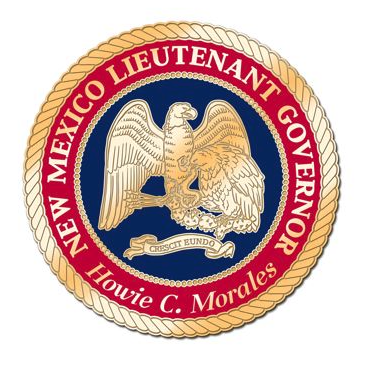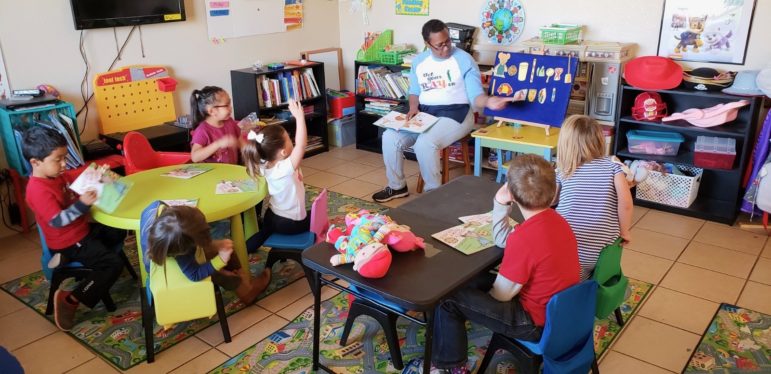Early childhood professionals are essential workers. Here’s how we can support them
Opinion Editorial by Lt. Gov. Howie Morales, ECECD Secretary Elizabeth Groginsky March 30, 2020
Right now, the best thing most of us can do is stay home.
But that’s not true for everyone. As Governor Lujan Grisham’s March 24 order makes clear, we need certain essential workers to keep showing up to the job. These include health workers fighting to contain the virus’ spread and treat the sick, grocery workers who are keeping food on our tables, and public safety officials ensuring compliance with the “stay at home” mandate.
It also includes child care workers and other early childhood professionals. This crisis is making obvious what many of us already understood: child care providers are front-line, essential workers. They are first responders. Without them, our public health workforce couldn’t contain the virus. Without them, indispensable government services couldn’t operate. Without them, some of our children wouldn’t have safe, healthy places to go.
Despite the care and education they provide for our children, however, early childhood workers are some of the lowest-paid and least-protected in our state.
These are large, structural challenges that must be addressed – and we’re working to address them. Earlier this year, the Legislature and the Governor created the Early Childhood Trust Fund, and the Early Childhood Education and Care Department (ECECD) will launch on July 1.
The promise of these initiatives will unfold over several years, and they will take many shapes: enhanced training and educational opportunities for early childhood workers, a professionalized wage scale, and more.
Yet our early childhood community also needs support right now.
Thousands of parents are doing the right thing and keeping their children home. This helps prevent spread, but it also deprives child care centers of the revenue they need to support the children of essential workers.
That is why the Governor and ECECD have offered immediate financial support to providers who stay open during the emergency: an additional $250 per month for every child enrolled in child care assistance. In addition, the state is waiving copays in March and April for families that receive child care assistance.
We have also formed a range of partnerships to help providers find the emergency food and supplies they need; match providers who have vacancies with essential workers who need care; and allow New Mexicans to register as temporary emergency child care providers (provided they pass appropriate background checks and obtain health and safety certifications). All of these resources can be found at www.newmexicokids.org.
To keep our kids, families, and child care professionals safe, we have also developed elevated health and safety standards for early childhood settings during the COVID-19 crisis. In addition, the Governor has mandated that all COVID-19 testing will be free for New Mexicans, regardless of their insurance or immigration status. And the state is offering free comprehensive family health coverage for any uninsured child care worker who is diagnosed with COVID-19.
Of course, we hope to do much more for our early childhood community – both now and in the future. Over the last few weeks, we have strongly encouraged the federal government to assist the early childhood community, and we are closely examining the new stimulus package to see how we might best make use of these funds.
Over the longer term, of course, the fate of our early childhood community – and the kids and families in their care – will depend largely on the choices that we New Mexicans make for ourselves. That means lifting up our professionals, offering them every opportunity to learn and grow, supporting them with the compensation and respect they deserve, and above all, honoring the invaluable work they do on behalf of our families and young children. If we can manage that, our state will do more than just survive coronavirus – we’ll thrive.
###

